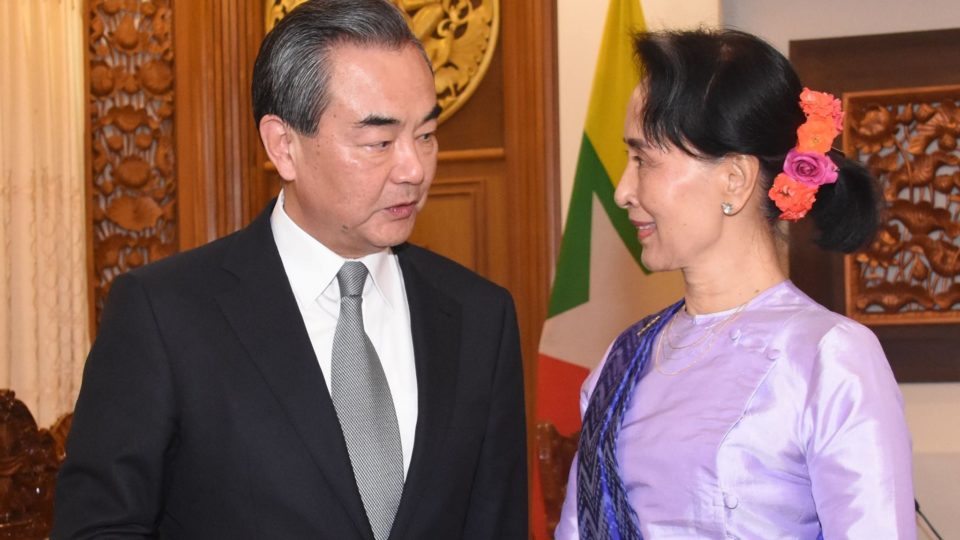China’s foreign ministry announced yesterday that Myanmar and Bangladesh have signed onto its plan to resolve the Rohingya refugee crisis, which Chinese foreign minister Wang Yi presented to Bangladesh last week and to Myanmar this weekend.
Wang’s three-phase plan aims to guide the two countries toward an agreement on the repatriation of Rohingya refugees, more than 620,000 of whom have fled military violence in Rakhine State and sought refuge in southern Bangladesh. The UN has called the mass displacement of Rohingya “ethnic cleansing.”
China, however, has backed Myanmar throughout the campaign, saying it “understands and supports” Myanmar’s efforts to protect its security. Myanmar’s military operations in Rakhine State were triggered by an August 25 attack by the Rohingya insurgent group ARSA on dozens of Myanmar security outposts.
The first phase of the Chinese plan calls for a ceasefire in Rakhine State “so that local residents can no longer be displaced.”
The second phase calls on the international community to encourage Myanmar and Bangladesh to maintain communication in the pursuit of a “feasible solution.” The two countries have already agreed to the repatriation on Rohingya refugees in principle.
The final phase would introduce long-term solutions, primarily local and international efforts to fight poverty in Rakhine State.
“Development can lead to stability,” Wang said at a joint press conference with State Counsellor Aung San Suu Kyi on Sunday.
“This proposal was approved in Bangladesh by Bangladesh leaders. [On Sunday], it also won approval from Myanmar leaders,” Chinese foreign ministry spokesman Lu Kang announced yesterday.
“We hope that Foreign Minister Wang Yi’s proposal will not only help to resolve the current Rohingya crisis, but also more importantly will contribute to fundamentally addressing the issue,” Lu said.
China has blocked most efforts to internationalize the Rohingya refugee crisis, instead positioning itself as a mediator between the two countries involved. Experts have posited that China is motivated by a desire to protect its US$7.3 billion investment in the Kyaukpyu deep sea port project, located in Rakhine State. The port is expected to advance China’s One Belt One Road initiative, offering a link to the Bay of Bengal.
China’s focus on poverty alleviation as a solution to the refugee crisis is consistent with its interest in infrastructure development, but it ignores persecution at the root of the crisis.
A report released today by Amnesty International presents evidence that Myanmar’s mass displacement of Rohingya was preceded by decades of disenfranchisement, social exclusion, and restrictions on basic rights, such as freedom of movement and the right to an education.
The report says Myanmar’s discriminatory policies against the Rohingya amount to the crime against humanity of apartheid.
According to the report’s author, if Rohingya refugees are repatriated before these discriminatory policies are dismantled, they will be coming home to the same system of apartheid they fled.




